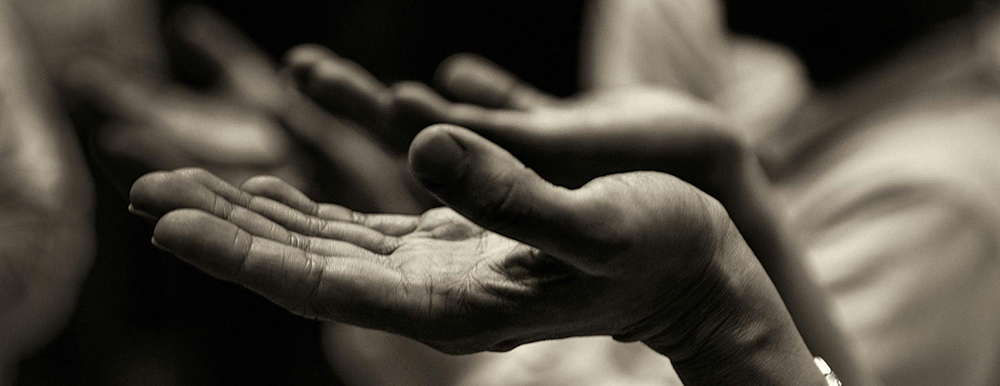In the mid-1990’s, my first husband and I used to spend Christmas and New Years vacationing in Puerto Vallarta, Mexico. We would rent a beachfront condo in the old-town section of the city for a couple weeks, and enjoy a luxurious relaxation lifestyle—complete with renting a Jeep to explore the surrounding jungles, dining in the many fine restaurants within walking distance from our summer “home”, and of course, spending hours soaking in the sun and surf on towel-covered lounge chairs under palapas along the water’s edge.
Just days into our second winter getaway on this particular trip, Jeep and I tried out a small local restaurant in the tourist area, which served us cocktails made from illegal moonshine (which we didn’t know was such at the time). Several hours later, I awoke to the sounds of Jeep crying out in pain beside me in bed. When I tried to touch his torso to to find out what was wrong, his cries turned into screams. I immediately ran down to the front desk of the condo complex and got the attention of the staff and told them we needed a doctor sent to the room immediately.
About 40 minutes later, we heard a knock at our door, and I welcomed in Dr. Pacheco, a physician who had an office within walking distance from our condo. After a brief exam, Dr. Pacheco treated Jeep for gastritis, and told us to not hesitate to contact him again if the symptoms worsened. He left us his business card, so we could call him directly to hasten a response should it be needed. For a few hours, Jeep’s symptoms subsided somewhat, and he was able to relax a bit. But the relief didn’t last long. By morning, the pain had returned, and his belly began to swell. I called Dr. Pacheco, and he advised us to get Jeep to a hospital asap, and he would meet us there to assist in his care.
Unable to get an ambulance through the narrow cobblestone road in front of the condo, we had to improvise by hiring a taxi. Much to Jeep’s discomfort, I had to walk him from our condo and down a flight of stairs to the street, then with the help of the taxi driver, get Jeep into the back seat so that he could lay down during the 10 minute drive to the nearest hospital. Jeep groaned and cried out as the taxi traversed the bumpy cobblestone road as carefully as possible, and finally we arrived at the emergency entrance, where Dr. Pacheco was waiting curbside with two physicians and a stretcher. Jeep was hoisted onto the stretcher, then brought into an exam room, where the doctors quickly began a series of tests.
The diagnosis was acute pancreatitis, brought on from the highly toxic level of alcohol from the cocktails we had been served the evening prior. Unfortunately, the hospital did not have a tube narrow enough to insert through Jeep’s nose and into his stomach to drain the rapidly accumulating fluids, and so I had to urgently book a learjet life flight to get Jeep back to San Francisco. Dr. Pacheco and the hospital helped me hire the doctors, plane and pilot, while American Express released any limits on my credit card to accommodate the $25,000 cost during this emergency. Within a couple hours, we transported Jeep to an airstrip and to a waiting plane with medical staff standing ready, and began the flight back to the United States.
When we arrived safely at the San Francisco airport several hours later, an ambulance was ready with doors open to retrieve Jeep and me, and we took off in minutes, sirens blaring, to a hospital near our home where Jeep’s physician had admitting privileges. Tense hours later, the diagnosis turned grim: Jeep had a 90% mortality estimation because of the severity of his illness, and we were suddenly facing a life or death scenario. I had to return home to rest, and actually did get a little sleep out of sheer exhaustion and the stress of responding to this emergency, without any sleep, over the previous 24 hours.
Jeep remained under constant observation in the hospital for a couple days, before I received a phone call from him. “I’m waiting outside of the hospital,” he told me, much to my surprise. “I couldn’t stand being there anymore, and if I’m going to die, I want to be home…”. Minutes later, I arrived to the hospital entrance to find my partner standing there in his hospital gown—he had slipped out of the hospital undetected, stubbornly refusing to return inside and demanding to come home. On the way home, I called the hospital and explained the circumstances, then helped Jeep up the small flight of steps into our apartment and got him comfortable on the living room sofa, while beginning the frantic process of developing a home care setup to tend to my love.
The next 72 hours were a vigil, as I prayed to God for healing, strength and courage. I’ve never been so terrified in my life, prepared for the worst to happen at any moment, while hoping for a miracle. And the latter is what I received.
My animation studio faced the living room through open pocket sliding doors, so I could monitor Jeep while I worked and be there to assist him whenever he needed me. While I was at my computer, I heard him talking, and thought he was saying something to me. I got up and walked to the couch and asked him what I could do for him, and was surprised to learn he was not talking to me at all. A sense of dread crept over me, thinking that he was in a delusional state and hallucinating, amid fear that he was beginning to slip away from me. Then he shocked me with the following explanation:
“There is an old Indian woman sitting next to me on the sofa. She has had her hand on my belly for the last 24 hours, ” he said, quite lucid and looking me directly in the eyes. “And there is a little blond boy with glasses sitting on the floor by the sofa reading me stories. And right next to you in the entrance by the pocket doors, a Black man is standing. He’s watching over me.” I asked him how long they have been there, and he told me they appeared the first night I brought him home. They have been there every minute since, and were comforting him.
A short while later, when Jeep fell asleep, I stood in the middle of the living room and spoke to the beings I could not see. “Thank you for being here and helping Jeep,” I said to them. “You are welcome in our home.” Inside my heart, I knew that these were angels. A sense of hope and peace replaced the anxiety I was grappling with, and for the first time in days, I actually relaxed. I slept soundly that night, and the next day, Jeep was more alert and responsive. The angels were still there, he said.
Near the end of the third day, Jeep told me that the beings who held vigil with him for the previous 72 hours had gone, and he was beginning to feel hungry and a substantial relief from the pain in his abdomen. I could also see that the swelling of his midsection had reduced noticeably; he was sitting up and wanting to watch TV. As the evening progressed, he told me more about the angels.
“The old Indian woman was a shaman, using her hands to heal me,” he proclaimed. “The little blond boy never stopped reading me stories…he was keeping me comfortable and helping me focus my mind away from the pain.” When I asked about the man in the area of the pocket doors between the rooms, Jeep said, “He was watching me and the other two—kind of like a supervisor. He was making sure I was okay.”
Over the next several months, Jeep slowly returned to perfect health. During that time, I nursed him devotedly, ensuring he had everything he needed to assist with his recovery. Without a doubt, I know that these angels were sent by God, and were an act of divine healing, comfort, compassion and love. The Black man who supervised the other angels during Jeep’s healing would appear twenty-one years later, near the end of Jeep’s life. But that’s another story…

